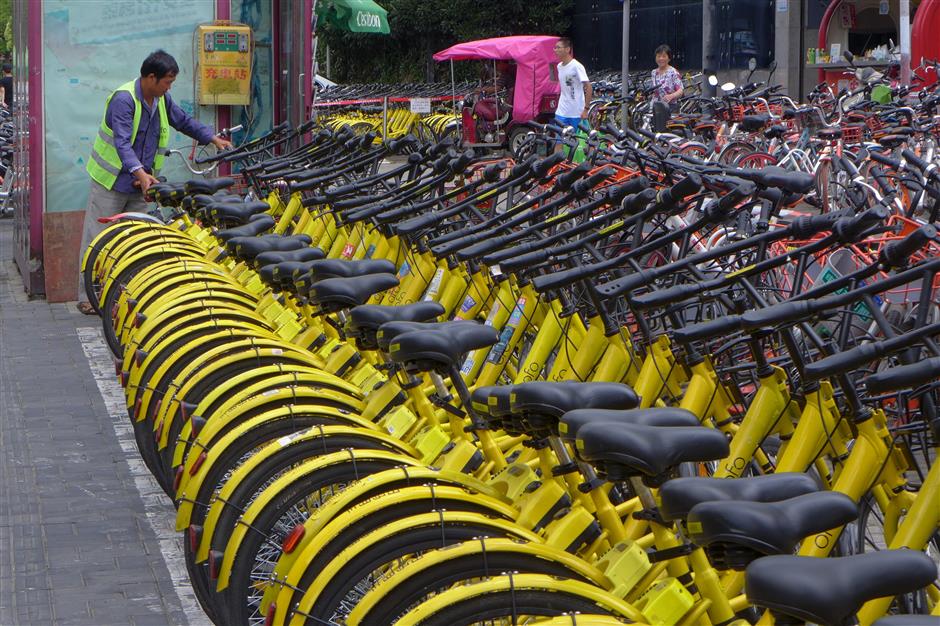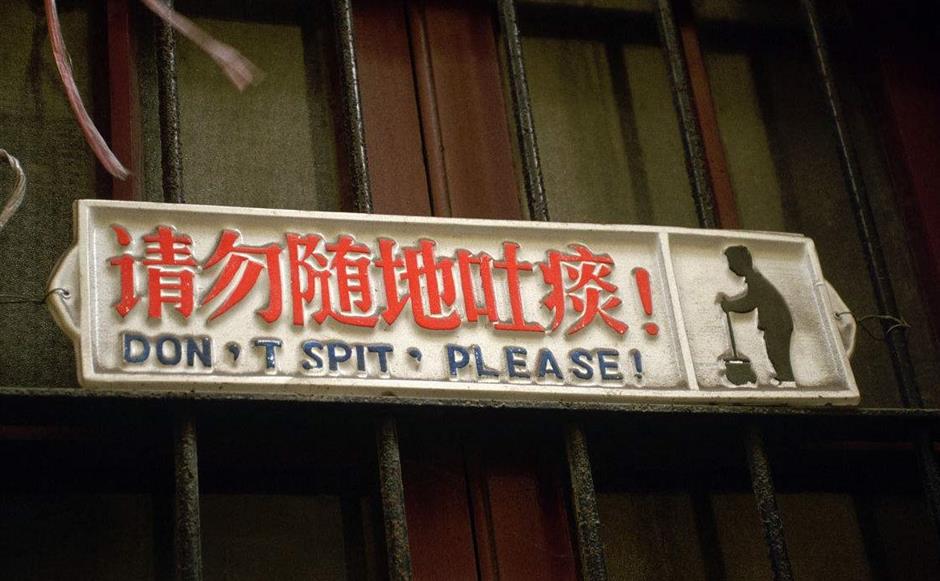Efforts continue to keep Shanghai sparkling, but one thorn remains stuck in her side

The ban on new shared bikes on the streets of Shanghai will help ensure a more pedestrian-friendly environment.
Shanghai is a beautiful city, with lots of tree-lined streets and gorgeous buildings to gaze at when you need some inspiration. But one huge problem remains: those hideous, gag-inducing, spine-chilling sights and sounds of people hucking up phlegm here, there and everywhere.
There have been lots and lots of development in Shanghai, all working some way or another to keep the city beautiful, and to make it even more beautiful than it already is.
One of these measures includes the recent announcement that a new set of guidelines have been drawn up relating to the city’s myriad light displays, on buildings, bridges and so on. You know what I’m talking about.
When I first arrived in China, in the southern city of Nanning, the Guangxi Zhuang Autonomous Region, after a long bus ride from Hanoi in Vietnam, I was very pleasantly surprised by the bright lights adorning nearly every building, flashing away in different patterns and colors through the night fog.
But the main reason I enjoyed those lights so much was because our journey that cold day traversed gray, foggy, wet mountains that left me feeling just a little bit melancholy.
After living here for a while, though, the pulsating lights on every building got a bit much. It became tacky, even. “It’s an, um, strong look,” one friend who came to visit noted with a healthy dash of Kiwi sarcasm.
That’s why I think it’s great that the Shanghai government has released new rules on the brightness, color and location of such displays in a bid to lessen “light pollution” — nice term, nice move.
Another nice move relates to rubbish and rubbish collection. Now, rubbish created by restaurants and wet markets located on 2,000 of Shanghai’s small and medium-sized streets will be collected directly and promptly by the city in order to lessen pollution, according to the Shanghai Greenery and Public Sanitation Bureau.
Some residents in suburban Jiading District went one step further, themselves collecting old, neglected rubbish from stairways and doorways — including once-loved tables, chairs, potted plants and home appliances — and turning them into artistic installations or useful daily commodities including storage boxes, pen cases, and even Chinese chess sets.
Across the way in Xin’an neighborhood of Anting Town, some other residents have been beautifying manhole covers with cartoons of Superman and remakes of famous paintings like “Starry Night.” I don’t know if that’s legal but it sounds fun.
It’s awesome to see people coming together and taking up the initiative to improve things using their own steam.

University students volunteer to sweep the streets at the Nanjing Road Pedestrian Mall.
Another development, although not completely recent, is the ban on new shared bikes on the streets of Shanghai. This will no doubt go a huge way in unclogging the streets and keeping things looking nice. Unless, of course, reports that Ofo have ignored the ban, making new bikes look old in order to avoid detection. Cheeky!
Which is why I really can’t understand why something isn’t being done about probably the gravest offence against decency that I can think of — tutan (hucking up and spitting phlegm) on the street. Okay, maybe it’s not the gravest offence, but it’s getting up there!
There’s nothing that sends a chill to my spine quicker, that makes me gag harder, than that loud, almost purposefully theatrical sound of someone bringing up and then spitting phlegm in my vicinity.
This morning, when I took my 10-minute walk to the gym, I counted dozens of instances. One of the things that’s perhaps most shocking is when someone in a group does it, right next to their friends or family, and no one tells them how disgusting it is or gets embarrassed.
But I really think it sends a terrible image to the rest of the world, even though most people don’t do it. The population is huge, so even if just a tiny number of people do something so loud and so openly, a bad impression can easily be born.
Every time I have friends or family come to visit me in China, they always seem to comment on this phenomenon, and I always have to tell them how it’s actually not all that common when you look at the sheer amount of people here.
But it could easily be changed. Why not take the route Singapore took, banning spitting in public with the threat of fines up to S$1,000 (US$735).
Or people could speak up, reminding culprits that their actions are both unhealthy and inconsiderate.
I dunno. Does it bother others as much as me?
It just seems that so much is being done to keep Shanghai beautiful and inspiring, but tutan remains a thorn in the city’s side. For me anyway.
















